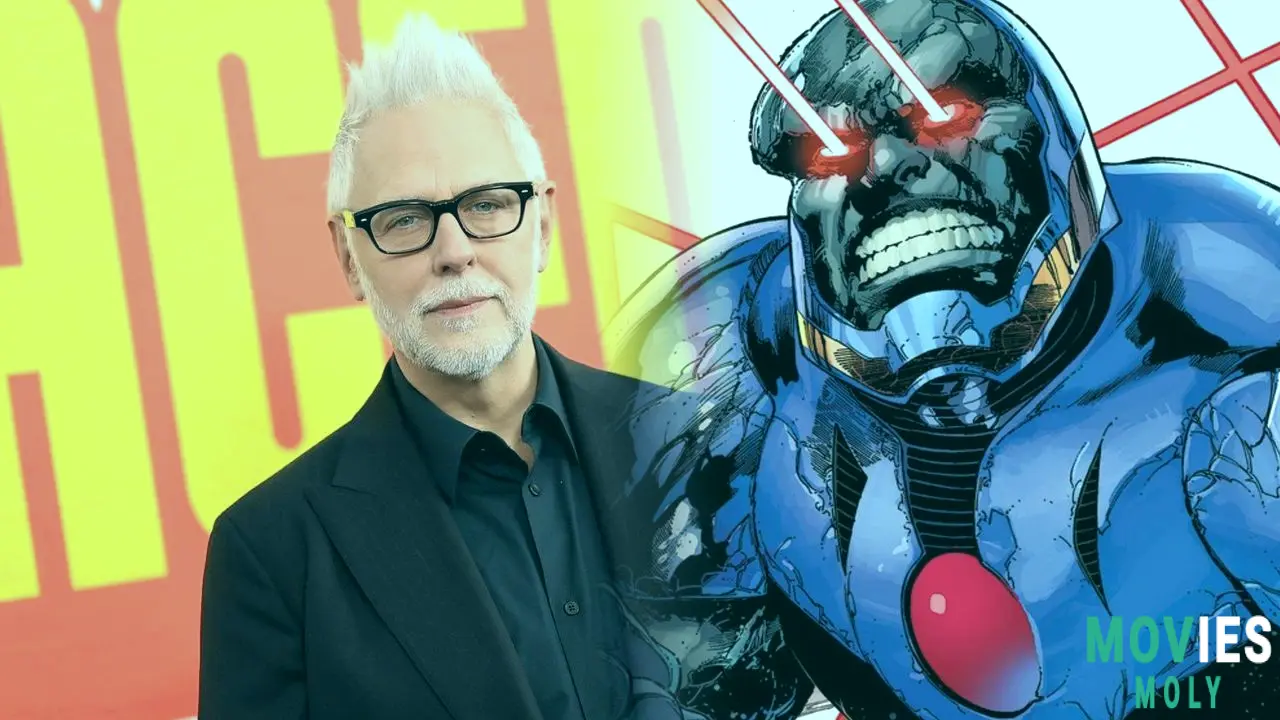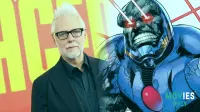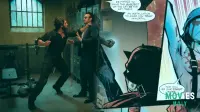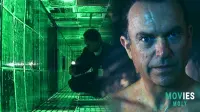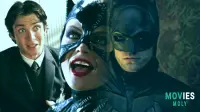DC Studios co-CEO James Gunn has officially spilled the beans on why the iconic cosmic tyrant, Darkseid, won't be the overarching "big bad" for the new DC Universe's initial chapter, citing some very understandable reasons.
TL;DR: Here's the Quick Scoop!
- James Gunn confirmed Darkseid isn't the main antagonist for the DCU's first saga, "Gods and Monsters."
- His reasons? To avoid repeating Zack Snyder's awesome take and to steer clear of comparisons to Marvel's Thanos.
- You'll still get a taste of Jack Kirby's Fourth World and the New Gods in the upcoming "Mr. Miracle" animated series.
Okay, DC fans, let's talk about the ultimate cosmic big bad: Darkseid. For years, ever since his brief, imposing introduction in Zack Snyder's Justice League in 2021, many have been speculating if this tyrannical ruler of Apokolips would finally step up as the central, overarching villain for James Gunn's ambitious new DC Universe. With the Peacemaker Season 2 finale dropping a major breadcrumb involving a "Salvation" planet – a concept tied to Darkseid in the comics – the whispers grew louder. But, hold onto your Mother Boxes, because DC Studios co-head James Gunn has officially poured some cold water on those theories, confirming that Darkseid won't be the primary antagonist for the Dcu's inaugural "Gods and Monsters" chapter.
In a recent, candid chat with New Rockstars and other YouTube channels specializing in superhero lore, Gunn was asked directly about Darkseid's future and whether the new universe would be building towards him. His answer was pretty straightforward: "Using Darkseid as the big bad right now is not necessarily the thing, for a lot of reasons." He didn't just leave us hanging, though; he laid out exactly why this significant decision was made, shedding light on the creative direction for the freshly rebooted DCU. This news, while perhaps disappointing to some, highlights Gunn's commitment to delivering a truly distinct and original narrative experience for DC's storied characters.
Understanding the Core Reasons for Darkseid's Absence from the Main Stage
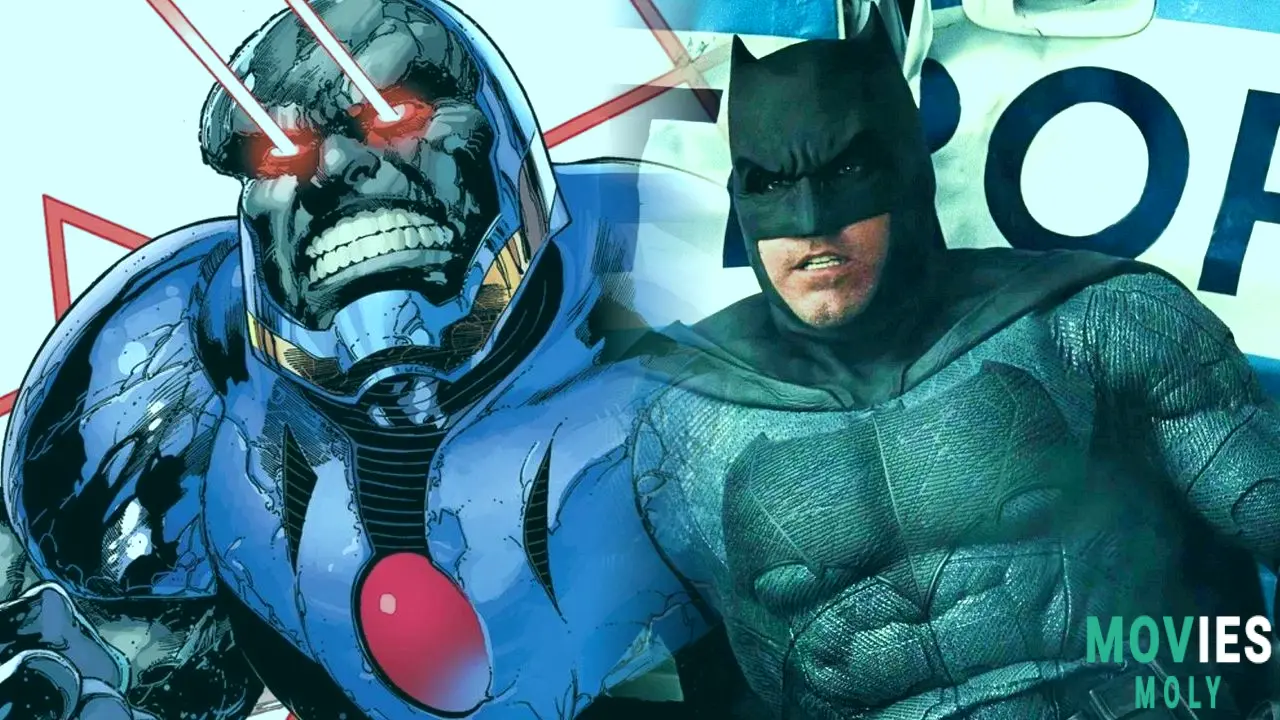
Gunn highlighted two major, interconnected factors that led to Darkseid’s sideline status in the DCU's early days. The first reason stems from respect for past endeavors, as Gunn acknowledged director Zack Snyder's previous work, stating, "Because Zack did it so cool in his way." Snyder's ambitious vision for Darkseid was a massive part of his planned DCEU storyline, with the character's imposing appearance in 2021's Zack Snyder's Justice League giving fans a glimpse of the cosmic tyrant Snyder had intended. Gunn clearly respects that portrayal and aims to avoid a direct rehash, choosing instead to explore fresh narrative avenues for the new universe.
The second, equally impactful reason touches upon the broader superhero landscape: the undeniable similarities between Darkseid and Marvel's ultimate villain, Thanos. "There are aspects of Darkseid in Thanos," Gunn noted. "They are obviously very similar; they look very similar." This connection is rooted in comic book history; Jack Kirby created Darkseid for DC in 1970 (debuting in Superman's Pal, Jimmy Olsen #134). Marvel writer Jim Starlin later introduced Thanos in 1973 (in Iron Man #55), explicitly borrowing elements from Darkseid's design and tyrannical nature after an editor suggested making his initial Metron-inspired character more imposing.
"Using Darkseid as the big bad right now is not necessarily the thing... for a lot of reasons. Because Zack did it so cool in his way and because of Thanos in Marvel."— James Gunn, DC Studios Co-CEO
Thanos, of course, became a global pop culture icon as the "big bad" of the Marvel Cinematic Universe's Infinity Saga, dominating screens through Avengers: Infinity War and Avengers: Endgame. Gunn's reluctance to immediately position Darkseid in a similar role makes strategic sense: he wants the DCU's "Gods and Monsters" era to feel fresh, innovative, and distinctly DC, not like a direct echo of Marvel's immense success. It’s a clear move to establish the DCU’s own unique identity and narrative rhythm.
The Truth About Peacemaker's Salvation Planet and Darkseid's Connection
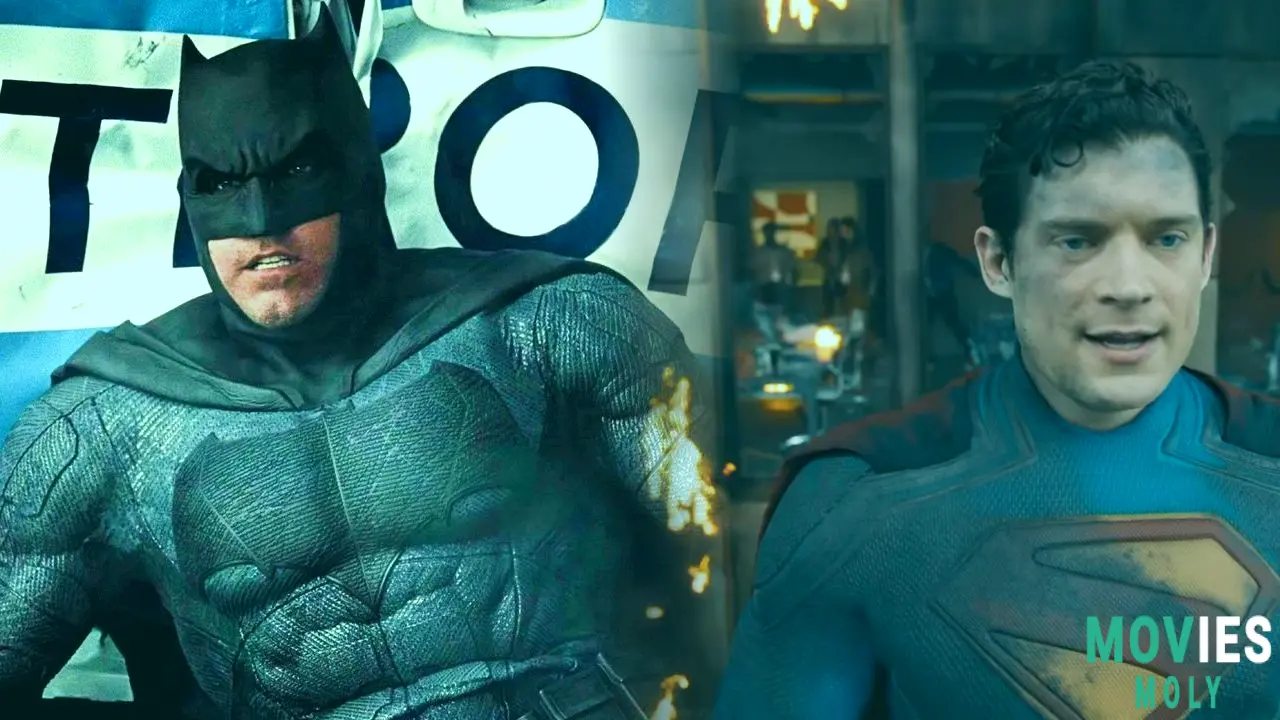
The internet practically exploded with speculation following the Peacemaker Season 2 finale, which saw John Cena's anti-hero transported to "Salvation." This mysterious planet in another dimension functions as a cosmic prison for metahumans. For seasoned comic book readers, the name "Salvation" immediately triggered memories of DC Comics' Salvation Run storyline, where the planet is notoriously depicted as a training ground for Darkseid's Parademons, often hinting at larger schemes by the Lord of Apokolips. This connection naturally fueled theories that the DCU was subtly, yet surely, building towards Darkseid as its ultimate overarching foe.
However, James Gunn was quick to step in and clarify, gently dialing back fan expectations. He confirmed that while he "liked the idea of supervillains building a society in this other dimension" and appreciated the "very practical way that Amanda Waller and Rick Flag Jr." were trying to deal with the persistent problem of metahumans escaping traditional prisons, the DCU's version of Salvation is not a direct conduit to Darkseid. Gunn explicitly stated he's only "leveraging the concept of Salvation" – the idea of a distant penal colony for metahumans – but not its inherent comic book ties to Darkseid as a "big bad" setup. So, if you were already drafting your fan theories about a "Final Crisis" adaptation flowing directly from Peacemaker, you might need to recalibrate! The immediate focus appears to be on the internal dynamics of this unique prison world rather than an external, cosmic puppet master.
Where Darkseid and the New Gods Will Actually Appear in the DC Universe
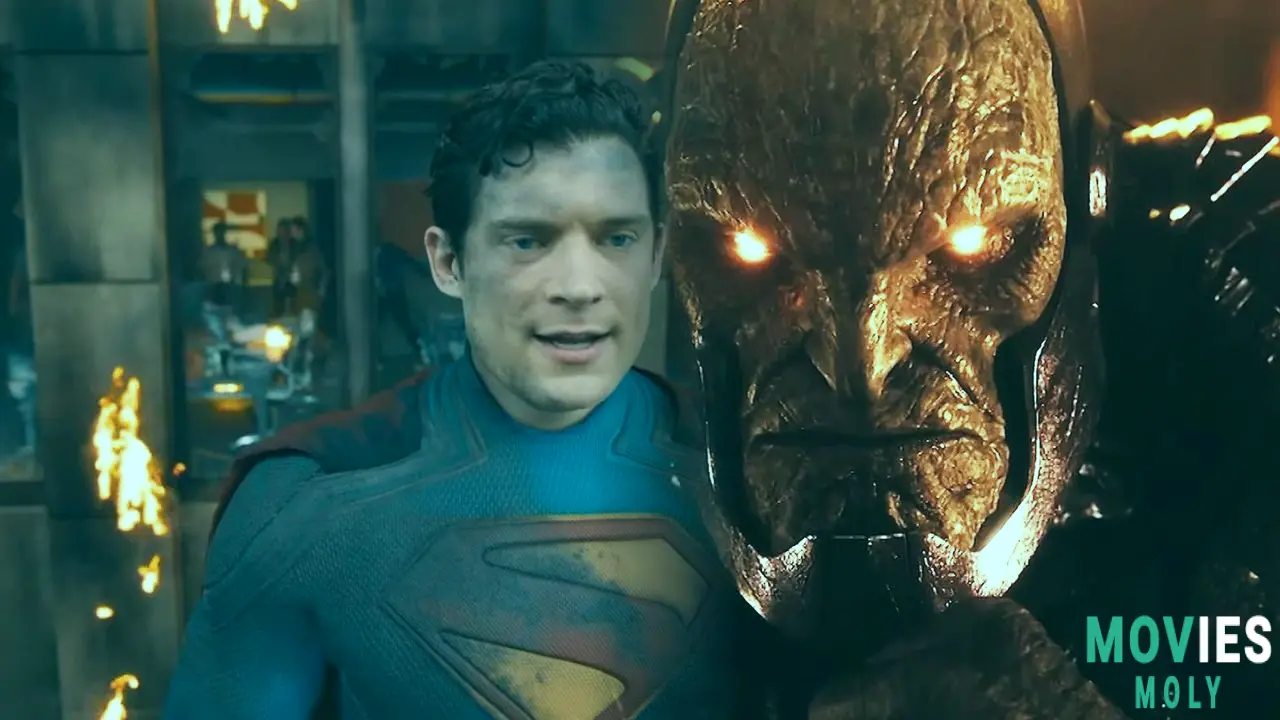
So, if Darkseid isn't the main event for the DCU's grand cinematic narrative, does that mean he's completely out of the picture for good? Not necessarily. Gunn's careful phrasing about Darkseid not being the "big bad right now" certainly leaves the door open for a future appearance down the line. After all, as Gunn himself has pointed out, plans in a cinematic universe can evolve; we've already seen that flexibility in action with projects like "The Authority" film, which was initially announced as a major DCU project but has since been placed on the back burner.
For the immediate future, however, the closest we'll get to Darkseid and his fascinating Fourth World will be through the highly anticipated "Mr. Miracle" adult animated series. This upcoming show is based on the critically acclaimed 2018 limited series by writer Tom King and artist Mitch Gerads, and Gunn himself has confirmed that this will be the place where we "get a look at the DC Studios version of Jack Kirby's Fourth World." Since Darkseid is intricately woven into the fabric of the New Gods mythology – famously being Scott Free's (Mr. Miracle) adoptive father – it’s a given that he will play a prominent, albeit perhaps more nuanced, role within the series. This animated format provides an excellent opportunity for the DCU to delve deep into Kirby's rich, complex creations without immediately positioning Darkseid as the primary, universe-threatening antagonist for the main live-action storyline. It's a smart way to satisfy fan desire for the character while maintaining creative distance for the core cinematic plot.
Exploring Other Candidates for the DC Universe's Ultimate Threat
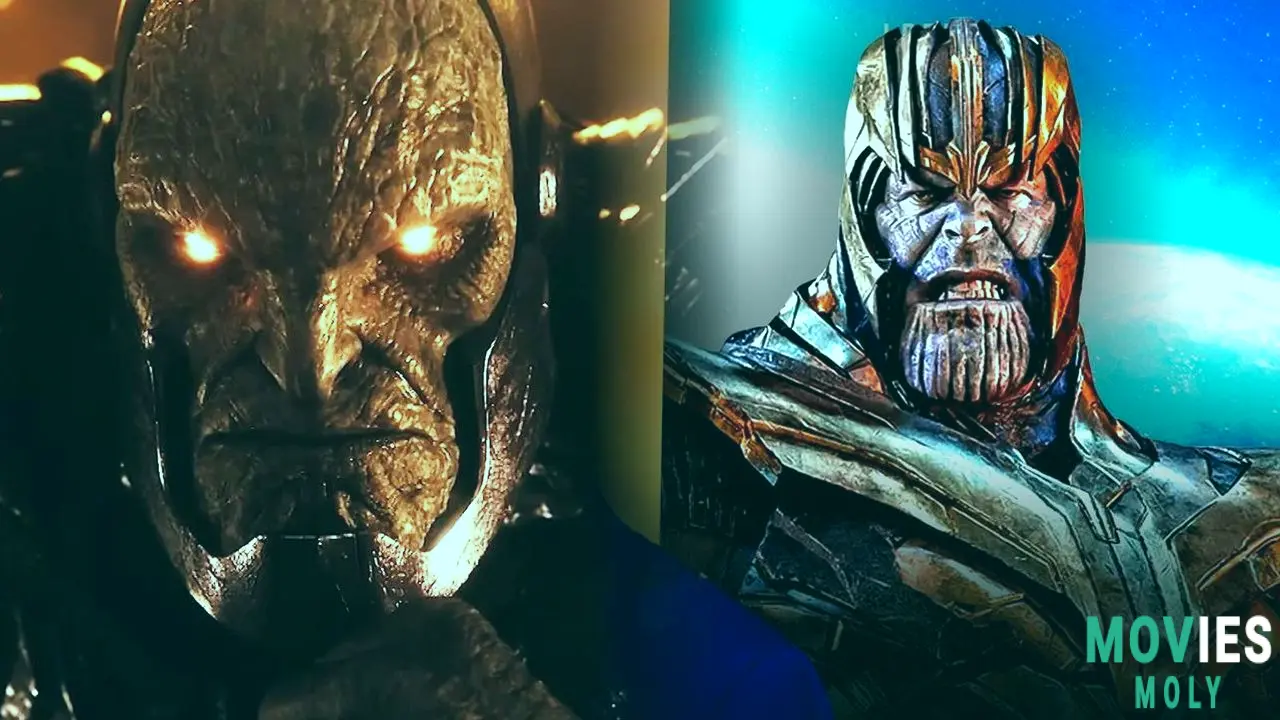
With Darkseid sidelined for now, the burning question is: who will be the DCU's central antagonist? James Gunn is known for surprising choices, but the recent articles offer tantalizing possibilities for a "Thanos-level" villain to unite the universe's heroes.
One strong contender rumored is Brainiac. The 2027 film Man of Tomorrow, the follow-up to Gunn’s Superman, is described as a story where Superman and Lex Luthor might team up against a "bigger threat." Brainiac perfectly fits as a cosmic, intelligent menace who could challenge the fledgling DCU's heroes to their absolute limits.
Other formidable foes from the comics being considered as potential overarching threats include:
- Anti-Monitor: A multiversal destroyer, perhaps the most logical option for a grand, universe-spanning saga.
- Black Hand: With the "Lanterns" TV series confirmed as a cornerstone, a live-action "Blackest Night" storyline, led by Black Hand as the avatar of death, would be unique and impactful.
- Vandal Savage: An immortal, brilliant tactician who has manipulated history for millennia, offering a deeply insidious, earth-bound, yet globally threatening mastermind.
- Mongul: The ruthless ruler of Warworld, a galactic tyrant strong enough to challenge Superman directly.
- Amazo: An android replicating metahuman powers, turning the Justice League's strengths into liabilities.
- Felix Faust: A master sorcerer who could unleash demonic forces, introducing a mystical, dark side to the DCU's threats.
Gunn's strategy is clear: establish core characters, build the universe, and make audiences care before escalating to an overwhelming cosmic threat. He wants the DCU to forge its own identity and tell fresh, unpredictable stories.
The Evolving Narrative of DC Universe Storytelling Under James Gunn
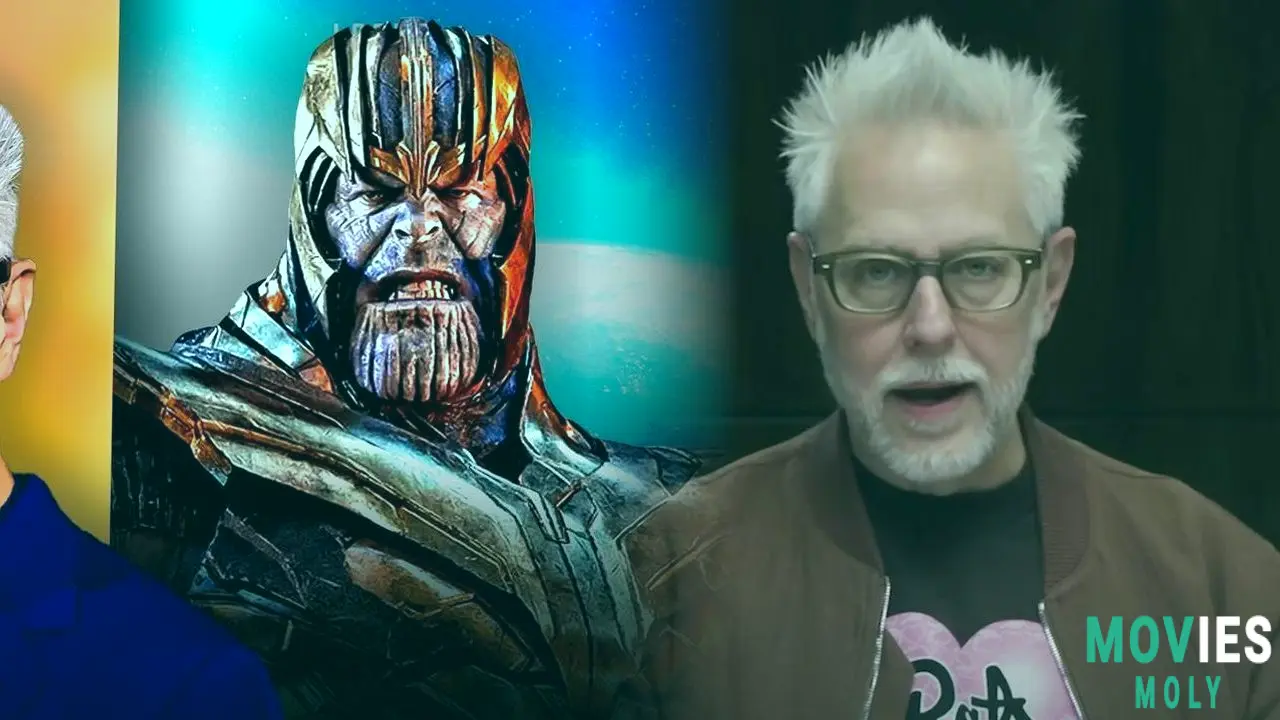
The DCU is still in its early stages, with "Superman" kicking off the much-anticipated "Gods and Monsters" era, promising a new beginning for these beloved characters. By consciously steering clear of Darkseid as the immediate, ultimate "big bad," James Gunn is making a definitive statement about his creative vision. This move aims to significantly differentiate his cinematic universe from both previous DC film iterations (like Zack Snyder's plans for the DCEU) and from Marvel's massively successful, Thanos-centric blueprint.
This decision opens up a huge sandbox for innovative and fresh storytelling, allowing the DCU to explore a diverse range of villains or present exciting new interpretations of existing ones. It ensures that the unfolding narrative will feel genuinely new and unpredictable, giving audiences something truly exciting and unexpected. It's a bold and strategic move, one that promises a unique and compelling journey for DC fans as this vibrant new universe continues to unfold on both the big screen and streaming platforms. Get ready for a DCU that marches to the beat of its own drum!
Frequently Asked Questions About the DCU's Future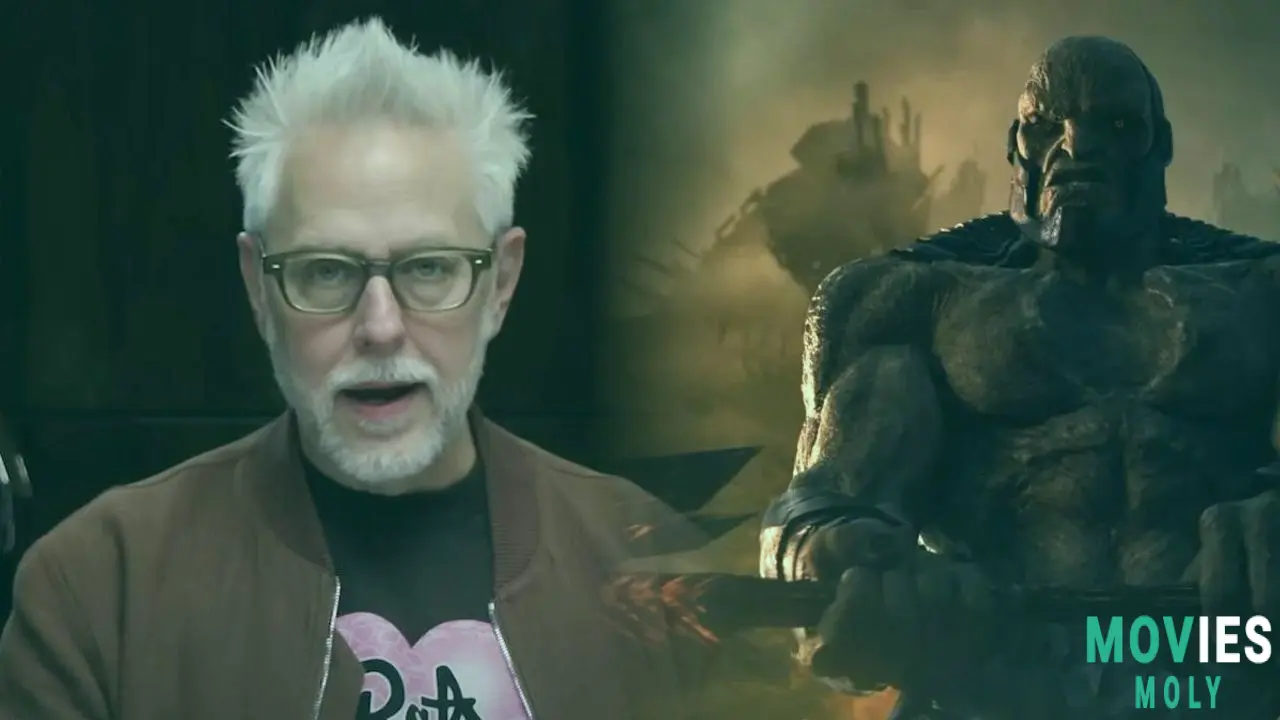
Sources:
- New Rockstars interview (referenced across multiple news reports)
- IGN
- Forbes
- ScreenCrush
- ComicBook.com
- CinemaBlend
- The Direct

